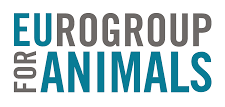|
In the midst of the national elections in Chile, the Eurogroup for Animals and Vegetarianos Hoy issued a
report calling on the EU and Chile to better address animal welfare in their modernized trade agreement. The
conclusion of the first EU-Chile agreement, in 2002, was followed by an intensification in the Chilean sectors of
livestock and aquaculture. The new text must do better and contribute to a transition to systems
sustainable food, in which animal welfare is promoted and respected.
The first round of Chilean presidential and legislative elections just took place last weekend. As these elections approach, the debate around the finalization and ratification of the modernized association agreement between the European Union and Chile has intensified within the Community. The two main candidates who will run against each other in the second round (December 19) have not expressed any clear opposition to the conclusion of such an agreement with the EU.
In 2002, when the EU and Chile concluded their first trade agreement, they added, for the first time, provisions on cooperation on animal welfare. Even though this cooperation was based only on animal welfare standards set by the World Organization for Animal Health (OIE), the inclusion of these provisions helped accelerate the adoption by the Chilean government of a national law on the protection of animals in 2009.
As the negotiations come to an end, the Eurogroup for Animals and the Chilean organization Vegetarianos Hoy reiterate their appeal to the two partners to seize the opportunity offered by the modernization of the EU-Chile agreement, to ensure that the EU-Chile trade does not have a negative impact on animals. The new trade agreement must also contribute to a transition to sustainable food systems that benefit animals, people and the environment.
The time has never been so opportune for the EU to engage with Chile on this subject: the Chilean Parliament is currently debating two pieces of legislation on the legal status of animals and the production of eggs in cages.
It is also urgent to act. Since the entry into force of the 2002 trade agreement, the livestock industry in Chile has grown and intensified considerably. Chilean exports of salmon, chicken and pork to the EU have also increased, and since the 2002 agreement did not condition trade preferences in terms of animal welfare conditions, such trade between the EU and Chile have indirectly contributed to the spread of this more intensive farming model. A model that is not only detrimental to animal welfare, but also fuels global challenges such as the spread of zoonoses, skyrocketing antimicrobial resistance, biodiversity loss, deforestation and climate change.
This phenomenon could even worsen, as Chilean producers indicated that better market access would give them more incentive to expand their exports to the EU. If the modernized trade agreement between the EU and Chile were to provide such significant access to the market for Chilean animal products, it would also have to make this preferential access conditional on compliance with animal welfare standards equivalent to or higher than those of the EU. EU. In addition, the modernized agreement must include ambitious provisions on cooperation on animal welfare, with recognition of animal sensitivity and cooperation aimed at regulatory alignment with EU rules.
“The first EU-Chile agreement marked a turning point for animal welfare in trade policy. Yet the intensification of farming and aquaculture that followed shows that stronger tools are needed to ensure that trade policy does not negatively impact animals. The EU must use the modernization process around the EU-Chile agreement to make the granting of new market access conditional on compliance with standards equivalent to those of the EU in terms of animal welfare. In doing so, the EU would not only help improve animal welfare, but would also encourage farmers and producers to switch to more sustainable and humane production methods ”, commented Reineke Hameleers, CEO of the Eurogroup. for animals.
All eyes are on the EU to reconcile the goals of the Green Deal and, as envisaged by the 'Farm to Table' strategy, use its trade policy to 'get ambitious commitments from the EU. from third countries in key areas such as animal welfare ”.
Notes
Download the Chile briefing note - Animal protection in EU trade negotiations
also available in Spanish .
|







Comments